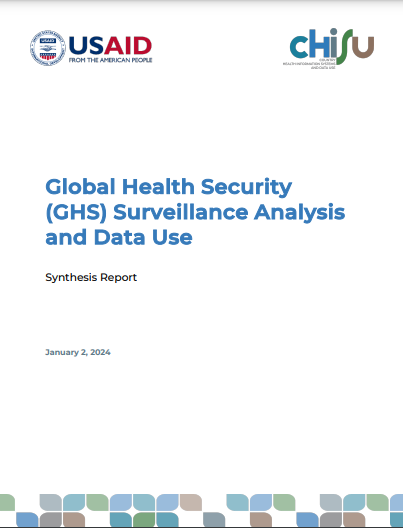The Global Health Security Agenda (GHSA) is a global effort to strengthen countries’ capacities to prevent, detect, and respond to epidemics, pandemics, and other emerging infectious disease threats. The GHSA is intended to accelerate action and spur progress toward implementation of the World Health Organization’s (WHO) International Health Regulations (2005) (IHR) and other global health security frameworks. The WHO’s Joint External Evaluation (JEE) is a voluntary, collaborative, multisectoral process to assess country capacities to prevent, detect and rapidly respond to public health risks. Strengthening national surveillance systems’ capacity to identify and manage public health threats is a key component of global health security. Moreover, integrating information from multiple sources —including human and animal health, agriculture, security, defense, law enforcement, development assistance, foreign affairs, research, and finance— better addresses public health emergencies and provides evidence to prioritize resources and evaluate programs.
To enhance and expand USAID’s approach to Global Health Security, WHO’s Integrated Health Services Department and USAID’s Office of Health Systems in the Global Health Bureau jointly identified integration gaps in routine health and non-routine data for decision making in public health surveillance. This study assessed the gaps in the use of disease surveillance data for public health emergencies in Burkina Faso, Burundi, Ghana, Kenya, and Madagascar to identify opportunities for better integration of surveillance data with both routine health data and non-health data.
